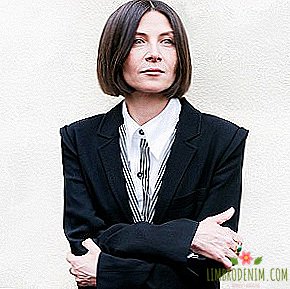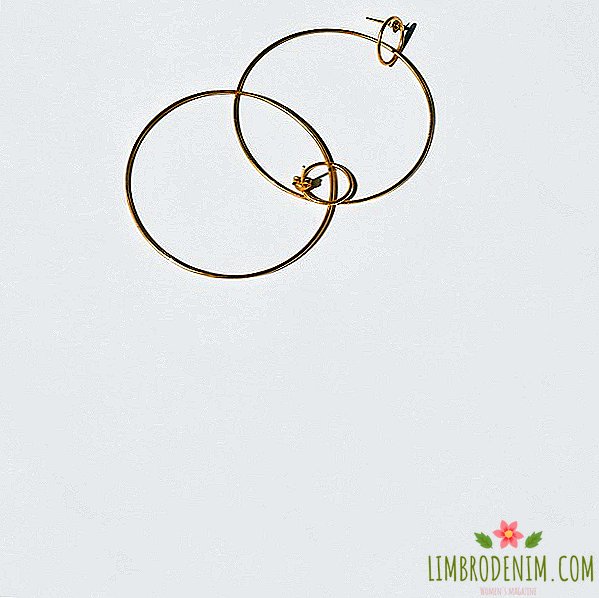It’s not the place for babies: Why moms aren’t allowed to breastfeed in public
At the beginning of the week, the Coffeemania chain of coffee houses was in the center of the scandal: Muscovite Olga Gracheva said that in one of the coffee shops, at the Sheremetyevo airport, the waiter forbade her friend to breastfeed the baby, referring to the charter of the institution. The girl was wearing clothes for feeding (that is, not even with a bare chest), but this was not enough. The management referred to the fact that feeding babies is not in the interest of visitors. We understand who is hampered by public breastfeeding and how legitimate attempts to limit it.

Conflicts around breastfeeding have happened not only in Russia. For example, a few years ago in the UK at Claridge's, a breastfeeding mother was asked to hide behind. Both the waiter and the manager, according to the woman, were polite to her, but they strongly recommended using a handkerchief - this is the policy of the establishment. The woman retorted that in a situation where she is covered with a napkin, feeding becomes more noticeable. It is curious that the law was on her side. Since 2010, it has been forbidden in the country to demand that a nursing woman leave a public place - whether it is a cafe, a shop or a bus - so the situation with the hotel turned into a flash mob: several dozen mothers went to the hotel building and began to breastfeed their children.
A similar story happened in Denmark last week: a Facebook user told me that his wife, who was breastfeeding a child, was forced to leave the Disney store in Copenhagen. A few days later, company representatives apologized, promised to add special signs to the stores saying that they could be breastfed, and the staff could be trained better. The law protects the right of women to public breastfeeding not only in the UK, but also, for example, in Australia and forty-nine US states - but this does not mean that in practice mothers do not face restrictions and discrimination.
Lola Tagaeva, editor-in-chief of the Dozhd TV channel and mother of her one-year-old daughter, says that she calmly fed the child in public. She did it in special clothes adapted for feeding - so she was more comfortable. Tagaeva said that she had never faced a conviction, but if this had happened, she would have defended her rights. "I think this is our battle to enlighten society. Because he has a very controversial approach to a woman: it is required to give birth to her and to remain socially successful at the same time," she said. "If you left the decree early and communicate with people, then you are a cuckoo mother, and society condemns you. If you are sitting with a child, then there is nothing to talk to you about, because you are a hen, and society ignores you. The same applies to feeding: if you use a mixture, you bad mother and do not care about his immunity. If you feed the child where he directly wanted to eat, you are frustrating everyone around. The problem, I think, is that people are almost unaware that feeding a child is not a whim, but satisfying his vital need. "
Young mothers in traditional societies do encounter diametrically opposed attitudes. On the one hand, they are obliged to follow the breastfeeding cult (regardless of the circumstances of their life and state of health), on the other - to hide the feeding process in every possible way from people, even if it is very inconvenient for both the mother and her child.
In fact, opponents of public feeding proceed from Puritan considerations: there is nothing to bare the chest in public. Vyacheslav Golenev, a lawyer of the Moscow Bar Association “Zheleznikov and partners”, says: the law on administrative offenses contains the rule of maintaining public order (and law enforcement officials interpret it quite widely), for violation of which administrative responsibility is assumed: “Any conventional coffee house or other institution catering can be fined under the Code of Administrative Offenses if it does not ensure compliance with the requirements of public order. " At the same time, the rights of visitors are not protected: the law on the protection of consumer rights simply does not mention breastfeeding, that is, any point of public catering can formally introduce a ban on feeding in its charter.
Why aren't the same people being offended by the waitress’s deep cleavage from a beer commercial, but the breastfeeding breast, which most people have known since childhood, hurts deeply?
“The direct ban on breastfeeding in the charter of a coffee house does not contradict the legislation of the Russian Federation,” confirms Yulia Andreeva, project manager at S & K Vertical. But even legally, the situation can be viewed differently. "Feeding an infant is physiological, without its implementation the child cannot continue normal activity. That is, it is the same physiological process as visiting the lavatory. Restaurants cannot prohibit such processes - therefore they equip special places. In my opinion, they are obliged to equip the room of the mother and child or to prescribe the possibility of feeding, for example, in special clothes. "
Feeding in overalls could be considered a compromise (although the visitor of “Coffeemania” did not help), but many questions arise to him. Feeding clothes are often understood as multi-layered clothes or things with a special “built-in” pocket, with the help of which one can, as if imperceptibly, “attach” the baby to the breast. On the forums, mothers are advised to feed in a sling, apron, or in a special feeding cape. Needless to say that the feeding things are rarely attractive, they are just hot, especially in summer, and the feeding process itself looks much more deliberate? Why it is impossible to consider special just clothes on buttons - is it easier to unbutton it? Does the fact that the mother came to eat in a denim shirt or cardigan, that she tramples public foundations? Why don't the same people be offended by the waitress’s deep cleavage from a sexualized beer ad, but the breastfeeding chest, which most people have known since childhood, hurts deeply?
Not everyone is ready to feed the baby in the mother’s and child’s room or the toilet: the first one is designed for changing diapers and swaddling, the second one is unhygienic and uncomfortable for a long time. Students at the University of North Texas even released a series of posters on this occasion - taking pictures of themselves in narrow and dirty public toilet booths and accompanying the pictures with the signature "Bon appétit". It is almost impossible to calculate the time to feed the child only at home: babies require food every couple of hours. In other words, the nursing mother, following the restrictions, should remain in the apartment alone with the child for months, refusing the usual way of life and favorite places. The image of a family that is propagated in pop culture, which moves from its native city to the suburbs, so that the child is more pleasant, only feeds this idea.
Anna, the editor and translator, whose daughter will soon be four years old, says that recently she was asked at the cafe to let her child be quieter - although, until recently, there were no such situations. "This is probably justified, but I would like the request to be more polite," she says. It is against direct prohibitions: the responsibility for ensuring that children do not interfere with others lies with their own parents.
Many restaurateurs say that they are not against visitors with children, and families are allowed into their establishments - however, some at the same time emphasize that children should not disturb other visitors and violate the "comfort of the majority". "Kids friendly is dangerous: children often rush around the restaurant, at this time the waiter can go out with a hot dish, plus children often disturb other visitors who are not ready to listen to screams and cries, but came, let's say, to a romantic dinner," says Dmitry Levitsky, founder of the HURMA group of companies. “Therefore, when restaurateurs are asked to watch over their children, this does not mean that they are not hospitable or not customer-oriented, they, on the contrary, care about their visitors." Not so long ago, Levitsky posted on his Facebook page a message from the guest of his restaurant Meat Puppets Bar & Meatarea, who asked for well done steak roast, as she is pregnant and does not eat meat "with blood" - but the restaurant’s representatives refused to do so, saying This is contrary to the policies of the institution.

Representatives of "Coffeemania" also referred to the "comfort" of visitors without children: "We always strive to ensure that all guests are as comfortable as possible, but the guests often have different views on different issues of social life, sometimes quite opposite. We always try to find a compromise" .
Some public spaces, in principle, prohibit coming to their establishments with children - you probably have seen hotels for adults only or special "quiet zones" in them. For example, the Treackles Tea Shop in London does this: there is no direct ban on children in the café, but the staff strongly emphasizes that visitors with children are not welcome here - at least the child may be asked not to touch anything on the table.
Ellin Potter, the owner of the Treackles Tea Shop, says she has nothing against children, but her establishment is designed for adult women: “This is not a regular network like Costa or Starbucks. I cannot afford to buy broken ones again and again.” The Roman restaurant La Fraschetta del Pesce, which specializes in fresh fish, hung a sign on the door: "Due to unpleasant incidents caused by indecent behavior, children under five years old are not allowed in this restaurant." “They rush around the tables,” said the restaurant owner. “They pour olive oil on the floor, turn over jugs of water, throw salt shakers through the entire hall, try to break furniture, they shout, cry and, most importantly, hate fish.” In Russia, a little more than a year ago, the mother and child were not allowed into the Moscow bar "Strelka" - however, later, after a scandal in social networks, the administration apologized to her.
The question of whether to create spaces free from children is controversial. On the one hand, it is easy to understand those who are tired of other people's children - just as they would be tired of any other unfamiliar noisy person in a public place. On the other hand, young children are often not considered “full-fledged” people, so their needs are so easily sacrificed for the comfort of adults. The fact that an adult visitor can disturb other people as much as a child — to speak loudly and eat or, for example, pester strangers with conversations — is not taken into account.
Let private establishments formally have the right to install something like face-control at the entrance, referring to the fact that their visitors have a neighborhood of children or adults (for example, not well-dressed) unpleasant. But no one bothers the customers themselves to leave unflattering comments about the morals of the institution, to spoil its reputation, and therefore, to influence the revenue. “Coffeemania”, seeing the reaction of social networks, apologized and even removed the paragraph on the ban on public feeding from the statute. On the way, however, losing more than a dozen solvent mothers, who didn’t like it too much, that their breasts and their children are not worthy of this institution.
There is nothing unnatural in the desire to go somewhere with family, without changing your favorite places and old habits: a child is a family member like the rest
Yulia Andreeva reminds that the owners of cafes and restaurants should observe only the restrictions associated with the stay of minor children in cafes, bars and restaurants at night without being accompanied by adults. There are no exceptionally age restrictions for visiting catering establishments in Russian laws.
“It’s necessary, of course, to understand the format of the institution - this is more everyday than legal conversation,” says Vyacheslav Golenev. “It’s clear that there is a cafe where after 10 in the evening a special program starts for an adult audience. Or there’s a TV in the institution where video of category 14+ or 16+. Then, theoretically, in order to comply with the Law “On the Protection of Children from Information Harmful to their Health and Development,” the institution may provide in the internal rules the possibility of not allowing a visitor and at the same time will comply Akon. But if this is a common cafe or restaurant, I do not see what could prevent the parents and child to go along with him. After all, the child is a citizen like everyone else. "
In refusal to let parents with a child in a public place (if it is, of course, not a nightclub, where they don’t go with a child), it’s generally difficult not to see discrimination. Not all parents want to spend time exclusively in the "children's" places, not all are ready or have the opportunity to hire a nanny. And in the very desire to go somewhere family, without changing favorite places and old habits, there is nothing unnatural: a child is a family member like the rest, and parents may not want to spend time without him. After all, is it possible to teach a small person to calmly behave in a cafe, restaurant or gallery, if he gets there only after coming of age?
Nobody says that parents do not need to keep an eye on the child, think about how comfortable he will be in this or that place, and plan what he can do if he becomes bored. But in order for the institution to become comfortable for all kinds of people, including families, it does not have to have a children's room or special animation. There are enough minimal measures: children's chairs or the opportunity to ask for a little change in the dish (for example, not to add salt or a specific ingredient) so that it fits the child.
Do not think that by default even “adult” spaces are closed to children. For example, US senators were allowed to hire children. The best of the modern art museums - like the British Tate Modern, the American MoMA and the Russian Pushkin State Museum of Fine Arts - offer special family programs or give game tasks to young visitors (for example, copy a well-known picture) that they must perform while they go with their parents through the halls.
In some countries they go even further and strive to make cities comfortable for children - for example, they increase the number of pedestrian zones, as in Tirana, create natural zones, like in Rotterdam, track dangerous streets and zones for children, like in Bogota. There are very simple measures - for example, to draw a platform for playing the classics at bus stops. Perhaps the future is not to create separate spaces "for children" or "for families" and "for adults", but to make them comfortable for the maximum number of people - regardless of age.
Photo:guykantawan - stock.adobe.com





